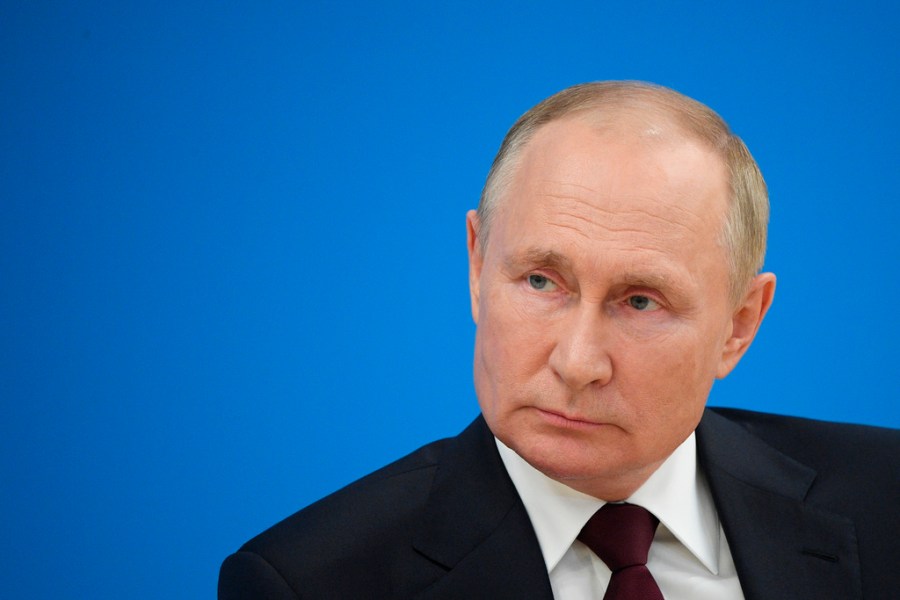
Imagine being a child watching in terror as your country is invaded, seeing bombs obliterate your town and wondering if your father fighting on the frontlines is even still alive. Then imagine being kidnapped by that invading army, taken to a hostile country where you are not allowed to speak your own language and told every day that your parents have abandoned you and your country soon will be wiped off the map.
For the approximately 20,000 Ukrainian children kidnapped by Russian forces, this nightmare is their reality. As the United States continues talks with Moscow and Kyiv to end the war in Ukraine, negotiators must prioritize the return of these innocent lives.
While Russia’s kidnapping and deportation of Ukrainian children has been occurring ever since Russia illegally annexed Crimea in May 2014, the numbers of these missing children have grown dramatically following the full-scale invasion in 2022. Notwithstanding Russia’s claims that these are “evacuations” for “humanitarian reasons,” Moscow’s actual intent behind the abductions is as clear as it is sinister — to erase Ukrainian identity.
Oleksandra Matviichuk, a famous Ukrainian human rights lawyer and winner of the 2022 Nobel Peace Prize, asserts that reprogramming children to “reject their native language and culture is a genocidal tactic aimed at erasing a people by destroying its future.” And that is exactly what Russia is attempting to do by sending the kidnapped Ukrainian children to “re-education” camps, where Russian operatives attempt to brainwash the children into forgetting or giving up their Ukrainian roots.
One teenager who was abducted and later returned to Ukraine recalled being forced to sing the Russian anthem every morning or be confined in a small cell. His captors repeatedly told him that Ukraine would soon cease to exist and replaced his Ukrainian birth certificate with a Russian version. In some instances, older Ukrainian children at the camps have been forced to undergo Russian military training so they can later “be sent to fight against fellow Ukrainians.” Russia has also put numerous Ukrainian children up for foster care or adoption on a Russian federal adoption website.
According to the Dutch government, which has been working to identify the missing children and return them to Ukraine, Russia is utilizing Crimea as a “hub” for the illegal movement of Ukrainian citizens, including children. Once the children are abducted from the occupied regions, they are taken to Crimea, then often deported to Russia.
Last December, Ukraine demanded that Russia terminate its colossal kidnapping campaign, but so far Moscow has not complied and instead denies any forcible transfer of Ukrainian children.
Ukraine needs help from allied nations to place pressure on the Russian regime, and the U.S. is the best candidate to do this.
Fortunately, the U.S. government made one step in the right direction when it restored the database of a project at Yale University that had been tracking Russia’s systematic deportations and adoptions of Ukrainian children. The project contributed to several criminal cases, including the International Criminal Court’s indictment of Russian President Vladimir Putin. And according to the Yale Daily News, the evidence compiled by the Yale Humanitarian Lab researchers “could lead to additional charges against Russian President Vladimir Putin; Maria Lvova-Belova, presidential commissioner for children’s rights; and other officials involved.”
While the project will not be restored at Yale because of the nearly complete halt to foreign aid, the data will be transferred to other parties, likely the International Criminal Court and Europol. This data is vital for achieving the return of all Russia-abducted Ukrainian children and prosecuting those involved in this war crime, so it is essential for the administration to ensure it is safely transferred to another entity.
To pursue complete justice, the United States needs to ensure the prosecution of those involved in these war crimes and demand the return of all deported Ukrainian children to their families. One prosecution-related step the U.S. could take would be to sanction the individuals who have been behind the abductions.
Ensuring the safe return of these kidnapped children is one of the few issues related to Ukraine that still enjoys bipartisan support. Both U.S. parties must continue to put aside other differences for the sake of saving these innocent Ukrainian children from Russian hands.
These children cannot be forgotten, especially as the war might be drawing to a close. If the return of all Ukrainian children is not included in the final deal garnered between Russia and Ukraine, then their return would likely never occur. Their return must be the priority of every lawmaker and politician involved in the negotiations.
Alexis Mrachek is senior program manager of the Human Rights & Freedom Program at the McCain Institute.

